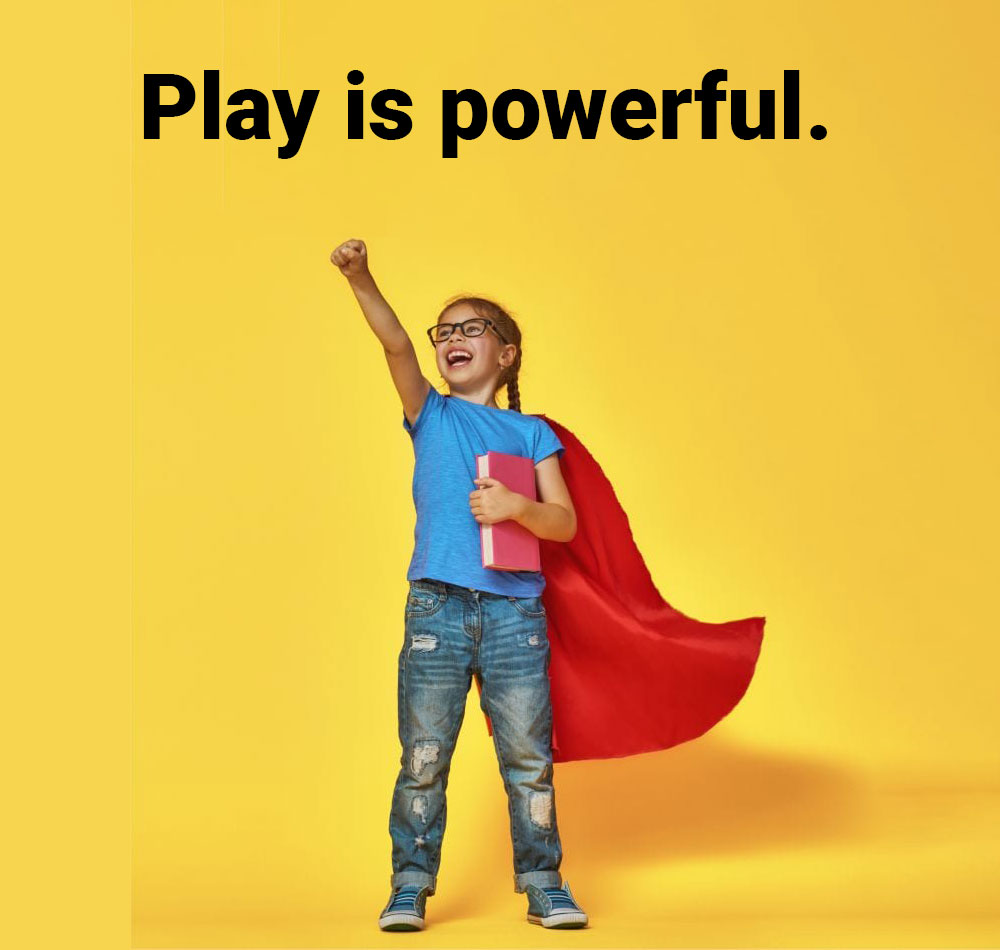
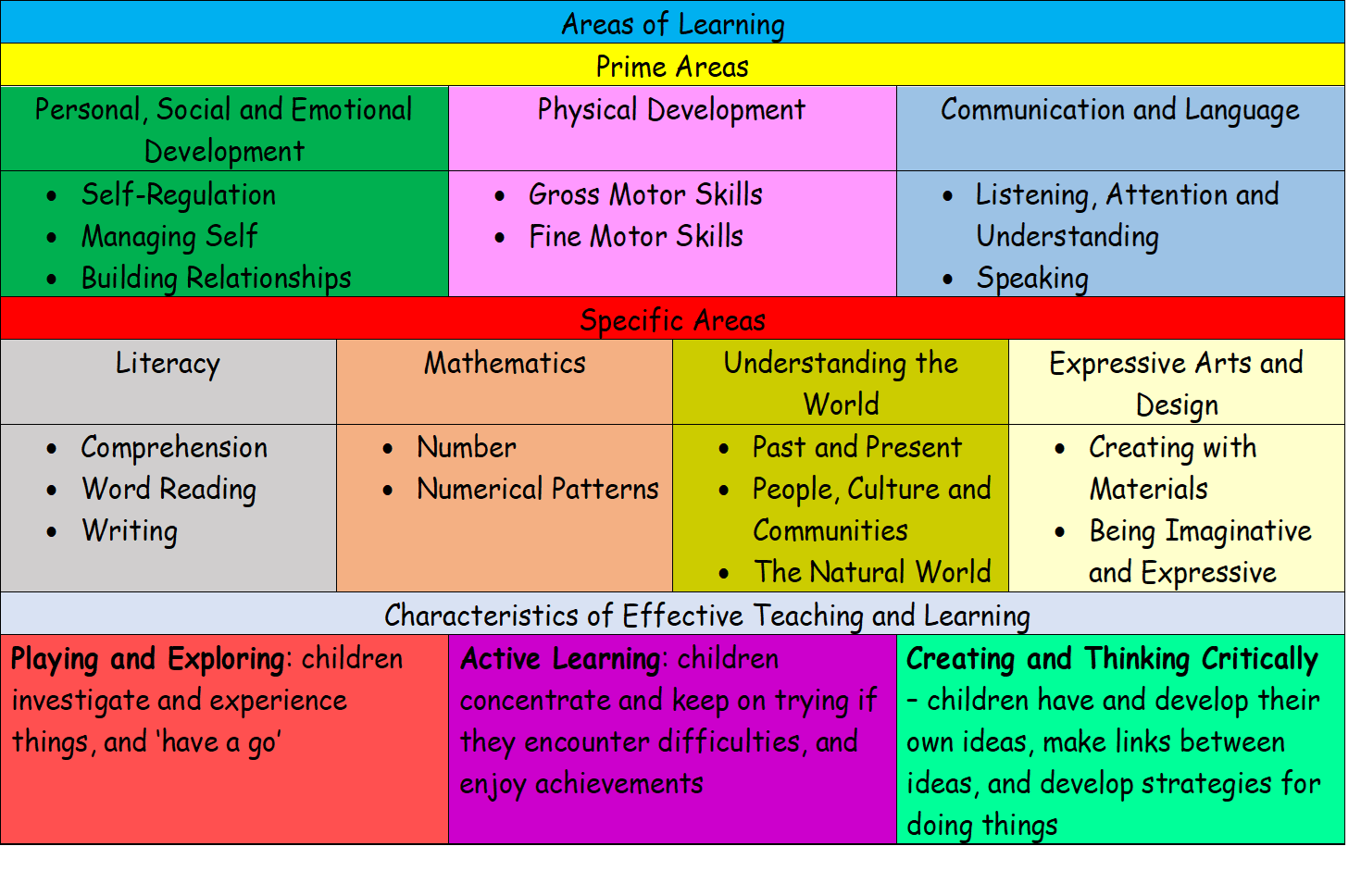
A successful transition is of paramount importance to us; pre-school into Reception as well as Reception into Year 1.
Prior to children joining us in September we put together a detailed programme where the children attend Stay and Play sessions, story times, a picnic. Tours, welcome messages and stories are uploaded onto Tapestry and the pre-schools that are most local to us are invited in for joint activities. With a growing number of feeder pre-schools, (approximately 15 in 2023), we ensure that between May and July, all children are visited in their current setting by a member of the EYFS team. A meeting also takes place with the pre-school key workers to ensure a detailed handover of information. All of this contributes to ensuring a smooth transition, where the children are familiar with the adults and their new environment, they feel happy and have a sense of belonging. In September the children have a phased start to school where adults can build positive relationships and help the children to feel secure and settled. We understand that some children may take longer to settle so we work closely with our families and prioritise personal, social and emotional development.
Transitioning into Year 1 is of equal importance and we want to make the process as easy as possible for the children by having a clear model in place. Children will have the opportunity to meet their new teacher, visit their new classroom and experience a ‘move up’ morning. Teaching approaches and provision in Year 1 will mirror that of EYFS so that the children migrate naturally from Reception into Year 1 to ensure continuity and consistency. Year 1 will continue to follow a play-based approach which will be cohort specific and adapted across the year. Additional visits, transition books, social stories will be put into place for those children that need it.
We will work closely with families at all times to ensure a smooth transition for all of our children.
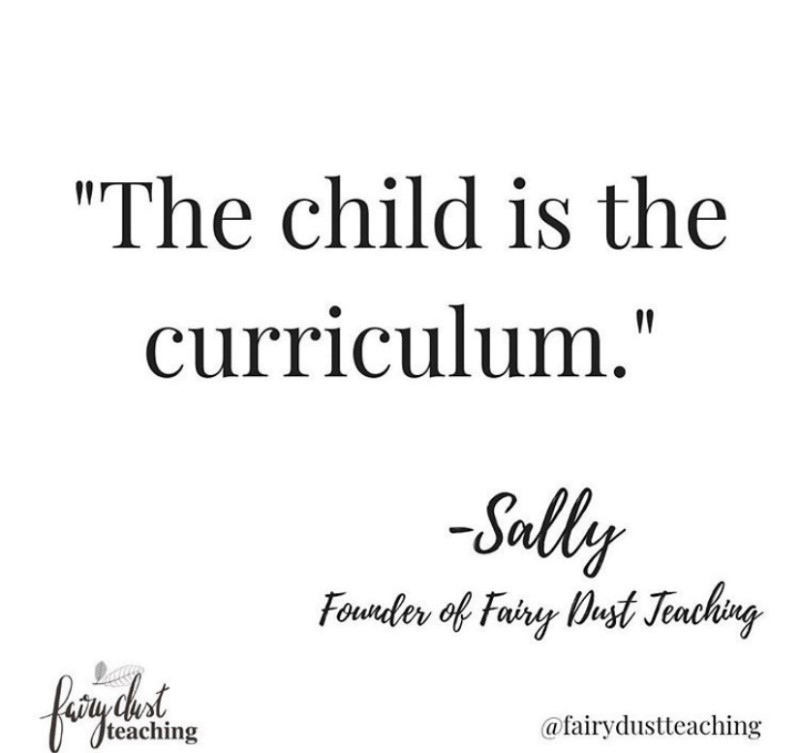
#implementation{}
At Bailey’s Court we follow the Early Years Statutory Framework. This sets the standards that all early years providers must meet to ensure that children learn and develop well. Through our knowledge of each child, built upon by continual observations, quality interactions and formative assessments, the EYFS team plan exciting and engaging activities that will move the children’s learning forward. Our curriculum centres around well thought out termly themes but with the flexibility to follow the children’s own interests. The curriculum therefore, is our cultural capital where we build upon early experiences, giving opportunities to explore, take risks, inspire learning, develop curiosity and experience awe and wonder.
Children learn through a carefully constructed balance of child-initiated and adult-directed activities. There are frequent opportunities throughout the day for the children to participate in ‘Discovery Time’ where experiences in the provision, inside and outside, are both engaging and challenging. The curriculum is planned in a cross-curricula way to enable all aspects of child development. Skilful interactions with the adults, as well as the EYFS team being highly reflective in terms of the curriculum, provision and the environment, leads to depth of learning across the curriculum. As appropriate, the team will build in opportunities for focused group work. This means that the teacher can systematically check for understanding, identify and respond to misconceptions quickly, and provide real-time verbal feedback which results in a strong impact on the acquisition of new learning.
Each year every cohort varies and therefore every year will have its own unique blend of whole class, guided, adult-directed and child-initiated activities. This will all be dependent upon the nature and needs of the individuals. We always look forward to seeing where the year will take us!
Play underpins our approach to learning – children learn by playing and exploring, being active and thinking creatively and critically. We want our children to develop resilience, independence and a sense of well being. Children will make their own decisions about where they learn best and therefore the whole EYFS environment will be rich in opportunities across all areas of learning. Through frequent learning walks within the environment, staff are highly reflective and adapt current practice and provision accordingly.
Our inclusive approach means that we endeavour to meet the needs of all of our children, not just the majority. We provide effective and focused interventions for those children who find aspects of their learning challenging and who are not on track to meet expectations. Additional interventions will also be put in place to enhance and scaffold those children working beyond expectations. This will include Talk Boost, Fun Friends, Precision Teaching. Support from parents will be enlisted from an early stage in order to build the partnership, working together to ensure that the children have the best possible opportunities to succeed and make progress.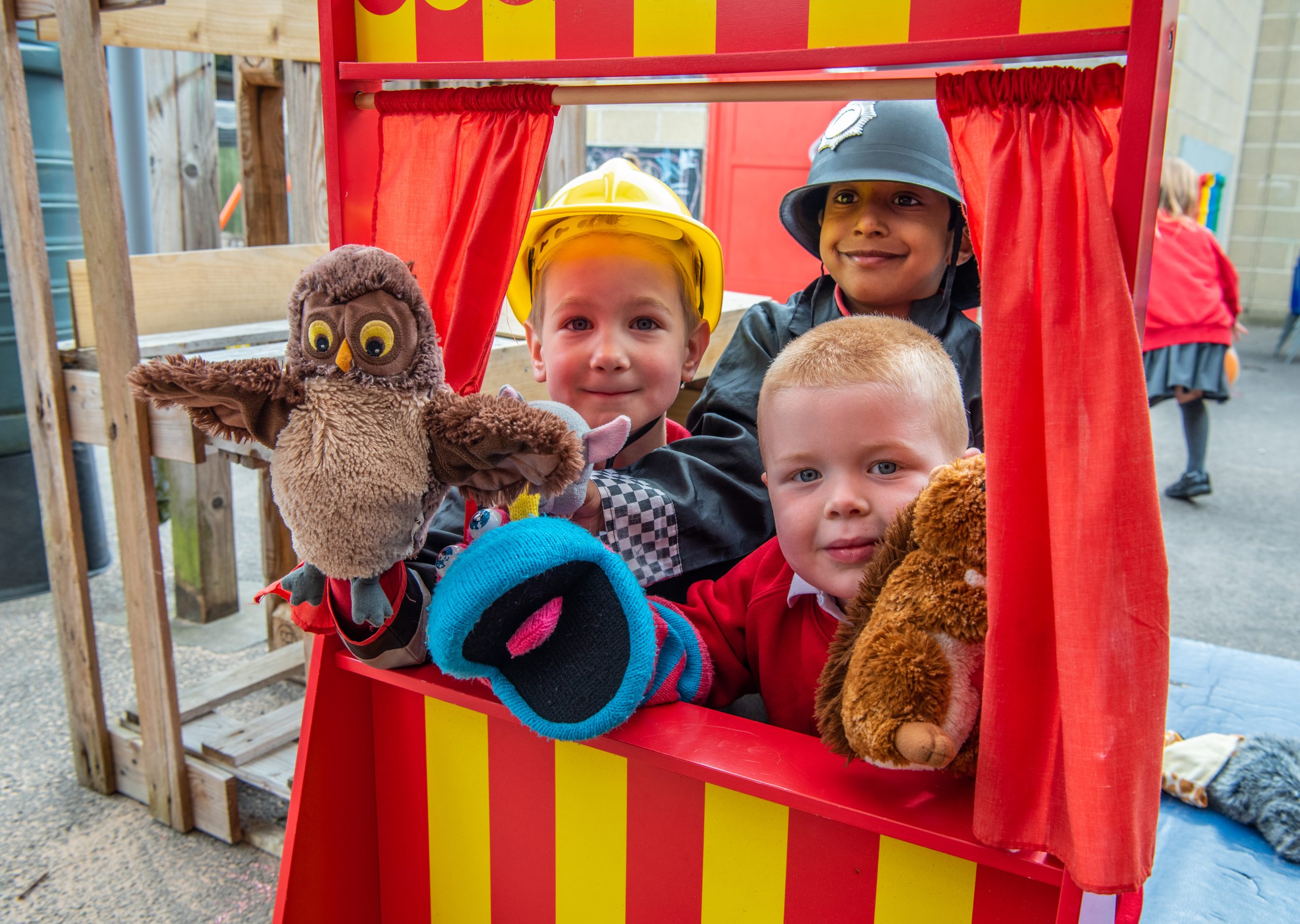
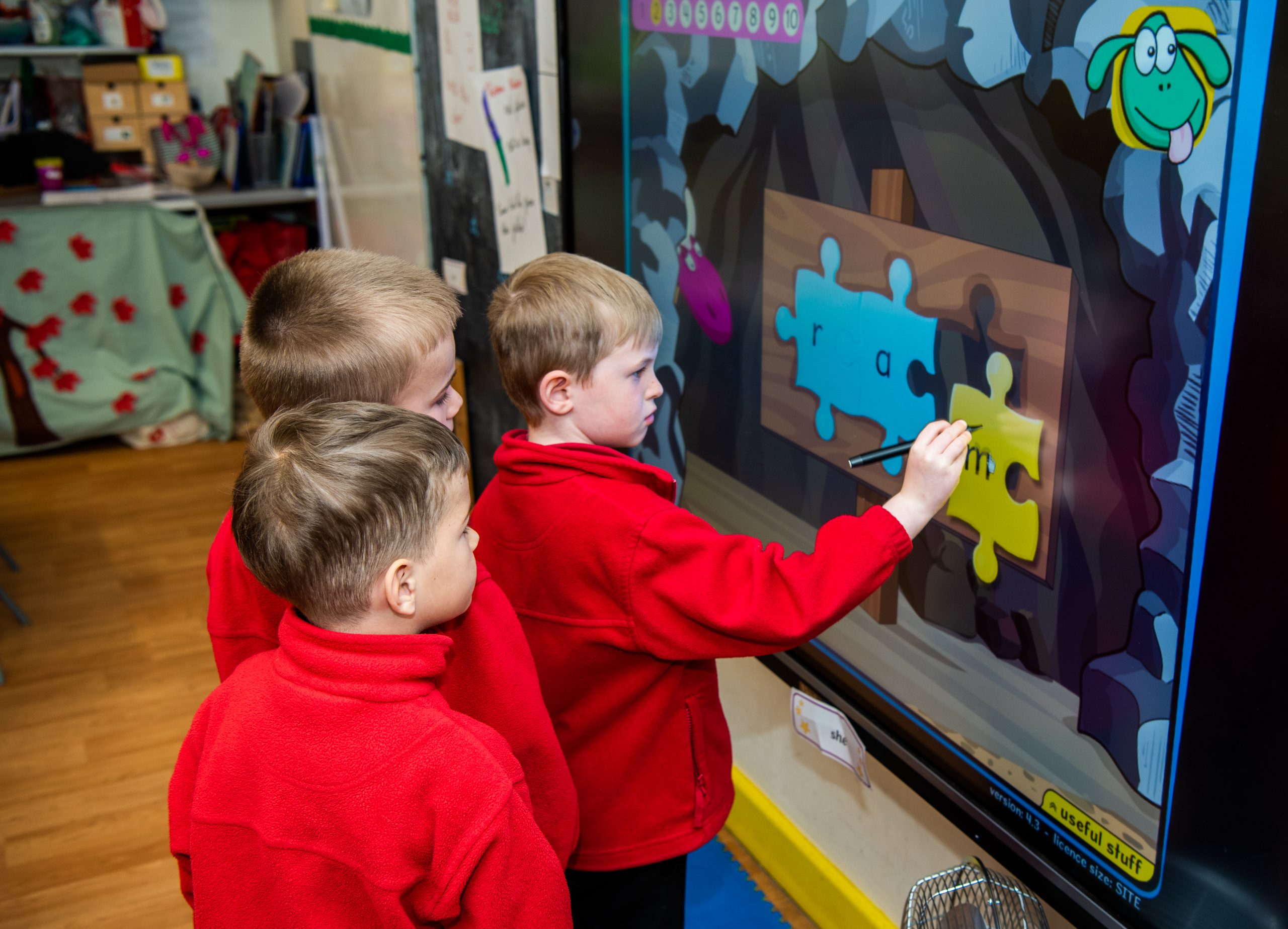
At Bailey’s Court Primary School, we feel passionately about children’s reading and believe that good quality, engaging books are crucial for all children. Using Bug Club as our core scheme, we ensure that a child’s reading book correlates to their phonological skills, linking directly with the teaching of phonics. Over time, the children will be given an additional reading book to share with an adult at home which will be a little more challenging (not all decodable), but will provide exposure to a wider range of vocabulary.
For Phonics, we are excited to be following the DfE validated ‘Supersonic Phonics Friends’ programme. The children have a daily phonics input with phonics activities always forming part of the continuous provision. Regular phonics assessments will take place throughout the year. The children begin with learning the ‘firm foundations’ and then move through the phases as appropriate. Phonics sessions are also used to develop letter formation and handwriting.
Writing is developed through all areas of learning with key approaches including Dough Disco and the ‘Message Centre’. In Reception, children will learn correct letter formation in its printed form. As the children move into Year 1 the school promotes the cursive style of handwriting, which supports spelling skills, cognitive development and visual skills.
This year, more so than ever, there will be an increased emphasis on the importance of developing communication and language. There will be a strong focus on communication, and the development of children’s spoken language will underpin all areas of learning as this is the foundation of thinking and learning. Adults will have a crucial part to play in developing and embedding early language skills and extending vocabulary across a broad curriculum. Through the implementation of ‘Drawing Club’, children will be supported in building up vocabulary by increasing the amount of words they know and can use. Adults will be role-models and engage in frequent, meaningful conversations whilst also encouraging this to take place peer to peer.
Developing fine and gross motor skills is vital in a child’s all-round development. It is important to start working with children on building their fine motor skills early on as these are the cornerstone of so many things that we expect children to be able to do. Fine motor skills will develop and improve as they move through childhood. In Reception we carry out daily fine motor skills activities and encourage parents to do this at home too. We work with the children to develop muscle tone and strength in their fingers, hands and wrists as well as developing hand-eye coordination. By providing quality support and provision for the development of fine motor skills children will be able to carry out a range of tasks independently and effective including manipulating objects, dressing, holding a pencil, writing.
Children need to develop competent gross motor skills to support their fine motor skills development. Through a combination of discrete lessons and opportunities to explore the environment freely, children will be encouraged to develop whole body movements enabling them to become increasingly coordinated, confident, agile and flexible. Naturally this will take place at different stages for different children but our environment and provision will give them time and space to do so.
Fine and gross motor skills activities are a fundamental part of the provision throughout the whole year.
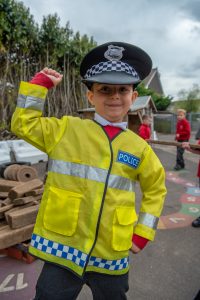 In Reception we follow White Rose Maths and Mastering Number, with an emphasis on developing number sense, which is a key priority in early Maths. Number sense is an intuitive understanding of numbers, their size, relationships, and how they connect. If a child can achieve number sense, they’ll have the perfect foundation for future challenges in maths and related subjects. Children with strong number sense think flexibly and fluently about numbers; they can visualise and talk comfortably about numbers. Children will be introduced to subitising, both perceptually, (being able to ‘just see’ how many are in a group, without counting), and conceptually, (being able to see numbers within numbers e.g. 6 is made of 4 and 2.) This helps to develop efficient calculating skills. There will be a daily Maths input and sessions are carefully planned using games, concrete resources, Numicon, building on prior learning as well as real life experiences. Maths sessions will start with mastering numbers 0-5 and then progress through to 10. It is important that children develop a really strong number sense to 10. Knowledge of numbers to 10 will underpin teaching teens numbers and beyond. Children are encouraged to use mathematical language in all areas of the curriculum and through their play. Children will be provided with a variety of opportunities to develop understanding of number, shape, measure and spatial thinking.
In Reception we follow White Rose Maths and Mastering Number, with an emphasis on developing number sense, which is a key priority in early Maths. Number sense is an intuitive understanding of numbers, their size, relationships, and how they connect. If a child can achieve number sense, they’ll have the perfect foundation for future challenges in maths and related subjects. Children with strong number sense think flexibly and fluently about numbers; they can visualise and talk comfortably about numbers. Children will be introduced to subitising, both perceptually, (being able to ‘just see’ how many are in a group, without counting), and conceptually, (being able to see numbers within numbers e.g. 6 is made of 4 and 2.) This helps to develop efficient calculating skills. There will be a daily Maths input and sessions are carefully planned using games, concrete resources, Numicon, building on prior learning as well as real life experiences. Maths sessions will start with mastering numbers 0-5 and then progress through to 10. It is important that children develop a really strong number sense to 10. Knowledge of numbers to 10 will underpin teaching teens numbers and beyond. Children are encouraged to use mathematical language in all areas of the curriculum and through their play. Children will be provided with a variety of opportunities to develop understanding of number, shape, measure and spatial thinking.
Our curriculum and provision must meet the needs of all of our children, including disadvantaged and SEND pupils, therefore we spend time evaluating, reflecting and reviewing. This is done by observing, talking to the children, looking at learning outcomes and analysing data. The impact of our curriculum is also reflected in having well rounded, happy and confident children ready to transition into Year 1, with the skills needed to access the Key Stage 1 curriculum.
Within the first 6 weeks of starting Reception, children will undertake the statutory Reception Baseline Assessment which focuses on communication, language, literacy, and maths. All staff will also use ongoing observations and assessments to develop an internal baseline assessment. This will identify children’s starting points across all areas of learning and provide an understanding of the whole child.
Continual observations and informal assessments are integral to understanding a child’s learning and development. These will help to shape the teaching and learning experiences and plays an important part in recognising children’s progress, understand needs, planning activities and providing necessary support. They should not however, take adults away from the children for long periods of time. There should be increased interactions where adults need to draw upon their expert professional judgement along with their own knowledge of each child.
As a school we use Tapestry as an online learning journal. We use it to capture significant moments / observations that can be shared with parents, as well as to support tracking where we can build up a picture of what each child can do and what their next steps are.
Pupil Profiles will be used to tell a child’s learning story; interventions, support, progress, next steps.
As well as the baseline at the start of the year, internal assessments will be carried out in Autumn and Spring using the non-statutory Development Matters as guidance. Children will be identified as ‘on track’ or ‘not on track’.
In Term 6, teachers will complete the ‘Early Years Foundation Stage Profile’ (EYFSP) for all children. This will assess their knowledge, skills, understanding and attainment at the end of the academic year against expected levels (Early Learning Goals), along with their readiness for Year 1. We will report whether each child is ‘emerging’ or ‘expected’ for each of the 17 aspects. Our aim is for children to achieve a Good Level of Development, with this outcome being higher than in previous years and higher than the National Average. Whilst there is no ‘exceeding’ judgement, it will be part of our practice to provide a thorough overview of attainment to the Year 1 teachers.